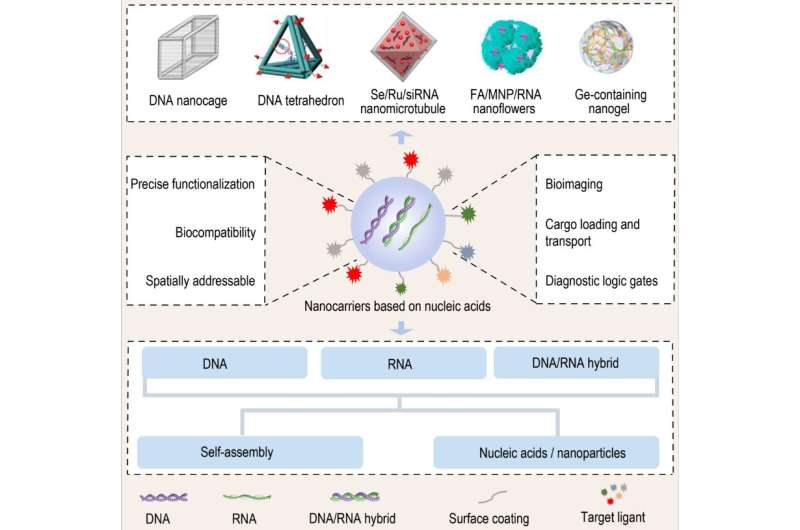Nanocarriers based on nucleic acids: An important player in the future field of nanomedicine

Currently, chemotherapy is still the main clinical treatment strategy for cancer. Although it has produced significant effects, chemotherapy also has a destructive effect on normal tissues and cells, bringing many side effects to patients. Therefore, it is necessary to study high-precision, safe and controllable treatment strategies. With the development of research, nanocarriers constructed by nucleic acids (NCNAs) with addressable and sequence specificity have caught the attention of researchers.
Recently, National Science Review published an academic paper titled "Construction of nanocarriers based on nucleic acids and their application in nanobiology delivery systems" online, which was organized and written by Professor Yingshu Guo of Qilu University of Technology and Professor Weihong Tan of Institute of Oncology and Basic Medicine of Chinese Academy of Sciences. The paper analyzed the classification and characteristics of NCNAs and systematically summarized their applications and advantages in the field of nanobiotics.
In this paper, NCNAs are divided into three types: 1) DNA nanocarriers; 2) RNA nanocarriers; 3) DNA/RNA composite nanocarriers. The application of NCNAs in biosensing is introduced in detail. The addition of NCNAs can improve nanomaterials' ability of target recognition by allowing them to effectively identify and analyze the target material as well as accurately control and trigger the reaction process, which has the potential for further exploration and application.
In addition, the use of NCNAs in cargo loading and transport (chemical drug delivery, gene delivery, vaccine delivery, photosensitizer delivery, etc.) and the application in the field of diagnosis logic gates are introduced systematically and in-depth analysis. Meanwhile, the application is in its infancy, and its clinical application still has a long way to go, needing an in-depth understanding of the characteristic of NCNAs for the exploration of higher precision, fully controllable nanocarriers.
More information: Yingshu Guo et al, Construction of nanocarriers based on nucleic acids and their application in nanobiology delivery systems, National Science Review (2022). DOI: 10.1093/nsr/nwac006
Provided by Science China Press





















